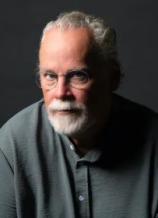Lost Light
Review
Lost Light
• Author
Talk
• Read an
Excerpt
An immutable admonition of life is "If it ain't broke, don't fix
it." Accordingly, it takes major confidence to take a tried and
true (not to mention popular) literary character and change things
around. This is exactly what Michael Connelly does with --- and to
--- Harry Bosch in LOST LIGHT. That he does it so well is an
indication not only of the depth of Connelly's talent but also of
the thought that went into doing what has been done here. This is a
novel that will be discussed for a while.
The largest change, at least initially, in Bosch's life was
telegraphed at the conclusion of CHASING THE DIME, when Bosch
walked out of L.A. police headquarters with a boxful of files
concerning unsolved cases. At the beginning of LOST LIGHT, we learn
that one of those cases concerned the murder of a young woman that
was apparently tied to the robbery of two million dollars from a
movie set and that had remained unsolved for four years. The murder
of the woman has haunted Bosch and, retired from the force and
independently wealthy, he is free to devote his time to investigate
it.
Another major change that Connelly makes in LOST LIGHT is relating
the story from the first person viewpoint, thus putting the readers
inside of Bosch's often enigmatic head. The shift in viewpoint ---
and in occupation --- has the effect of reminding the reader of
Raymond Chandler and thus Philip Marlowe.
Indeed, Connelly seems to pay tribute to Chandler's opening lines
of THE BIG SLEEP with the initial chapter of LOST LIGHT, when Bosch
appears, freshly shaven and in his best suit, at the front door of
a movie mogul. However, Bosch, unlike Marlowe, is seeking
information and not employment. As Bosch follows the money trail,
he finds that the heist has somehow become improbably intertwined
with issues involving national security. He is warned to step down,
as his investigation is apparently jeopardizing national interests
more important than the death of one woman several years before.
Bosch, however, is compelled to keep digging against the odds in
order to bring justice and closure to the woman's apparently
senseless death. And, while his lack of a badge and the authority
that goes with it renders many doors closed to him, it also
provides him with a freedom he has not enjoyed previously as he
slowly, painstakingly, finds the unexpected answers that will put
his life in jeopardy and result in surprising revelations.
LOST LIGHT contains two surprise endings, one of which resolves the
mystery therein and the other of which dramatically affects Bosch.
If Connelly sees fit to write another Bosch book, it seems as if it
will be as dramatically different as LOST LIGHT is from its
predecessors. Regardless of what he chooses to do, Connelly will no
doubt continue to challenge his characters, his readers and
himself.
Reviewed by Joe Hartlaub on January 22, 2011





